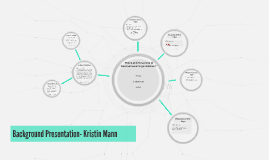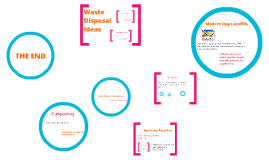Solid Waste Presentation
Transcript: *Aerobic Respiration: microorganisms use this process to break down material; process requires oxygen and water to live and multiply (Heat and carbon dioxide is given off during the aerobic respiration process) Composting Leachate is produced by the rain seeping through soil and garbage. Pipes underground control the flow of the leachate (Methane gas is released in process and in landfills) Clay in ground helps prevent contamination of water underground Two Types of Recycling Solid Waste Presentation Pay as you throw: amount of waste a person disposes determines the amount an individual must pay (for example: if a person increases their waste disposal, he/she will be charged more. if a person decreases their disposal, he/she will have to pay less) PAY AS YOU THROW helps encourage recycling, reusing, repurposing, etc.(AKA 4 R's) Pay for service: technically means when an individual gets charged for a SPECIFIC service (ex: health care) Requirements: Organic waste - newspaper, leaves, grass, kitchen waste (fruits, vegetables), woody materials, smaller particles Soil - source of microorganisms Water Air - source of oxygen What happens? Microorganisms from the soil eat and break down the organic waste into simpler parts, which produces a fiber and carbon-rich humus (with inorganic nutrients of nitrogen, phosphorus and potassium). A complex food web in the compost balance the population of the organisms which increases efficiency of the process Landfill Operations Common Solid Waste in the Typical Landfill By: Dillon Gozum Solid Wastes are any discarded, unwanted (abandoned or considered waste-like) materials. Forms of solid waste include: solid, liquid, and semi-solid or containerized gaseous material. Household Waste (trash, paper, aluminum,...etc) Hazardous Sludge Industrial Solid Waste Construction and demolition debris Closed-loop recycling (Primary): Products processed and recycled to create new products of the same type material/type (Examples: aluminum cans recycled to create new aluminum cans) Open-loop recycling (secondary): Materials recycled and processed to create different products (Examples: tires used to create road surfaces) How long does composting take? two weeks-months (depends on how the compost bin is managed) Why compost? reduces the amount of solid waste and also compost could be used as natural fertilizer Solid Waste 1. Loads of waste are released from a truck 2. Waste is covered with a layer of dirt (constructing the landfill in different layers) 3.Garbage decomposes over a period of time

















